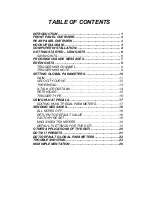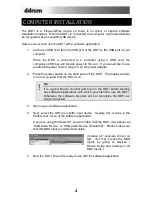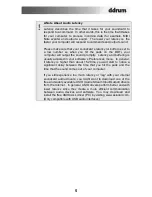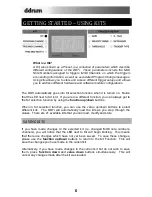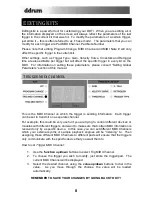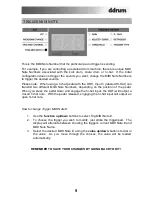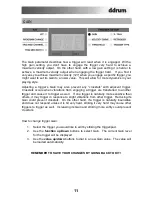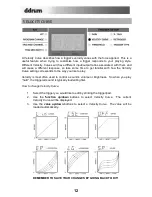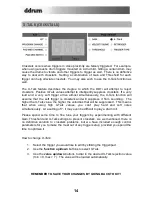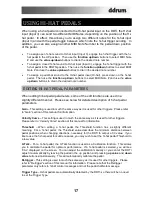
7
PROGRAM CHANGE MESSAGES
A
Program Change
, often referred to as a
Patch Change
, is a MIDI message used for
sending data to devices to cause them to change to a new program. This allows you
to tell a hardware or software device which sound to play. For example, if your DDTi
is controlling a rock drum kit in your DAW or on an external hardware device, using a
Program Change
command allows you to easily switch to an electronic kit. Program
Change messages also give you the freedom to re-orchestrate MIDI content without
having to redo any MIDI note information.
Each kit on the DDTi can have an associated Program Change message (0-127).
This means that, effectively, you can have each kit on the DDTi address a different
set of sounds in your DAW or external MIDI device. By default, each kit on the DDTi
is set to “---“. A Program Change message of “---“ means that no Program Change
message will be sent when the kit is loaded.
How to set a Program Change Message:
1.
Use the
function up/down
buttons to select Program Change.
2.
Select the desired Program Change message (0-127) using the value
up/down buttons to dial in the value. The Program message will be sent
automatically and will affect only that kit.
3.
Subsequently, every time you load the kit the selected Program Change
message will be sent to your DAW or external MIDI device.
REMEMBER TO SAVE YOUR CHANGES BY GOING BACK TO KIT!
Summary of Contents for DDTi
Page 1: ...REFERENCE MANUAL...
Page 2: ......
Page 4: ......
Page 31: ......
Page 32: ...MANUAL REVISION C...
Page 33: ...www ddrum com...
Page 34: ......



